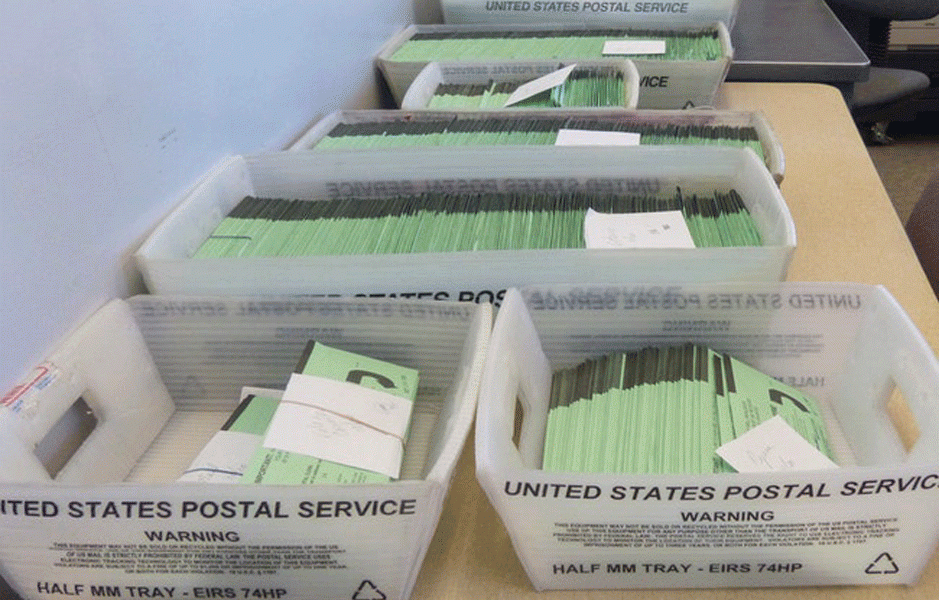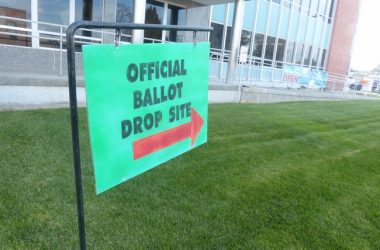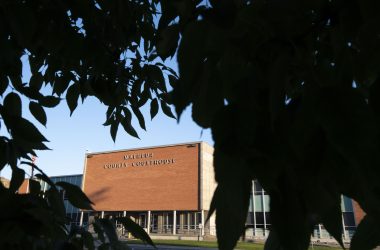ONTARIO – Two business owners familiar with Ontario and a relative newcomer in government are all vying to be Ontario mayor in the Nov. 8 election.
Riley Hill, a local contractor seeking as second term, faces Councilor Eddie Melendrez and business owner Debbie Folden, and all three candidates appear to broadly agree on the key challenges confronting the city.
The Enterprise sent questions on a variety of topics to all three candidates. The answers have been edited for length.
The Candidates
Riley Hill
Hill is the owner of Greystone Builders. A U.S. Marine Corps veteran, Hill was born and raised on the Yakama Indian Reservation and arrived in Ontario in the 1970s.
Hill said over the past 50 years, he has built houses, low-income housing and congregate care facilities. He’s been the mayor since 2018 and a member of the Ontario Public Works Committee for 12 years. He is also a member of the Malheur County Comprehensive Planning Committee and served a three-year term on the Ontario Budget Committee. He is also a founding member of the Malheur County Poverty to Prosperity, chair of the finance committee for Blessed Sacrament Catholic Church and a member of the Eastern Oregon Workforce Development Board.
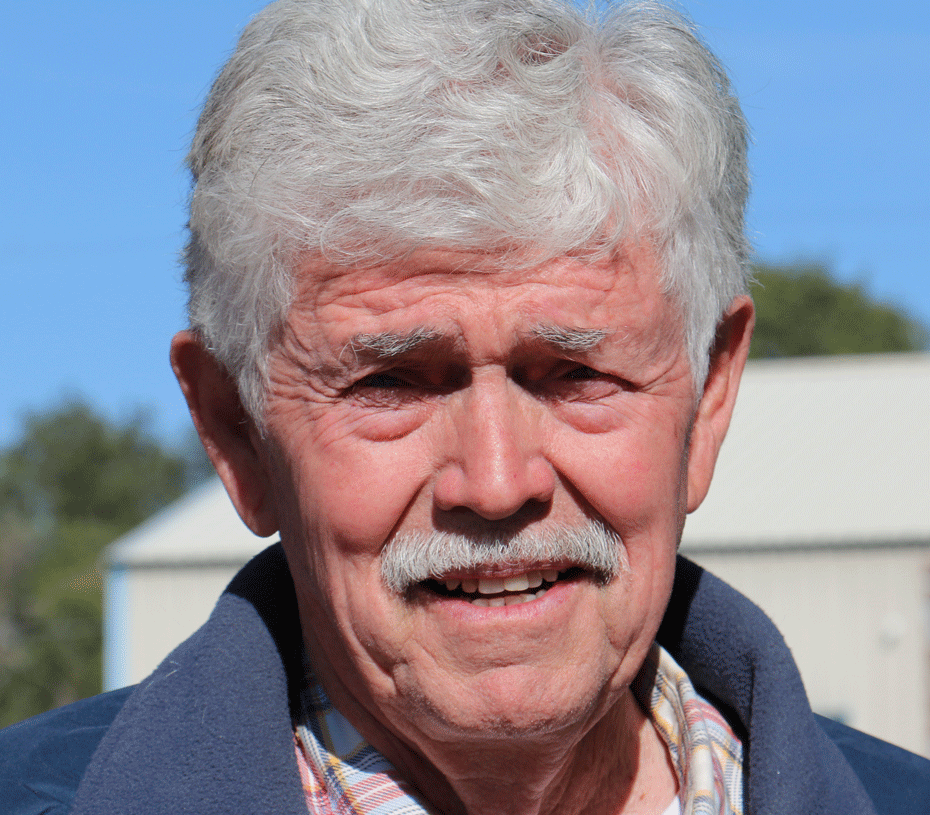
Eddie Melendrez
Born in Pasco, Washington, Melendrez was raised in Vale and was elected to the Ontario City Council in 2020. He acquired a welding certificate at TVCC in 2008 and joined the Malheur County Juvenile Department in 2009 where he served at-risk youth for seven years.
He then joined Community in Action in 2016 to work as a runaway and homeless youth specialist.
Melendrez has or is serving on numerous local organizations including the city parks committee, Ontario Kiwanis Club, the Ontario School Board and was named the 2019 Ontario Area Chamber of Commerce Man of the Year.
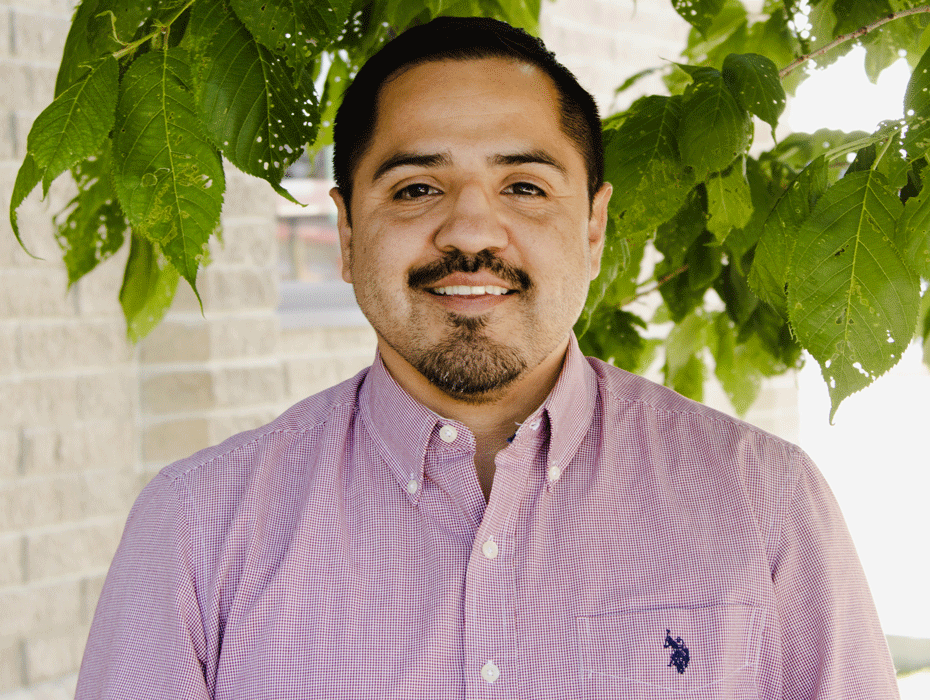
Debbie Folden
Folden and her family moved to Ontario in 1969 and she graduated from Ontario High School. After she started a family, Folden started a daycare and then “dove into the collection business.”
In 1994 Folden started her business, Advantage Financial Credit Service. She has no prior public service.
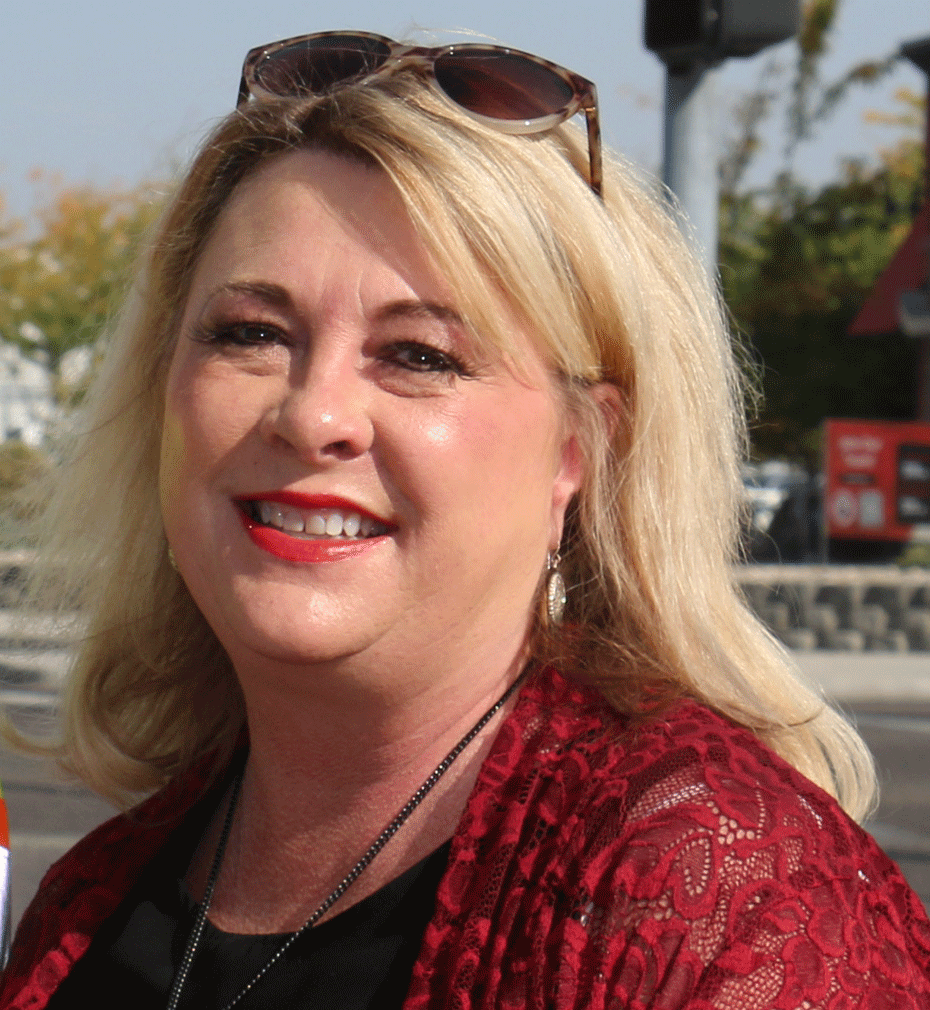
Q What are your top three concerns for your community?
Melendrez: Public safety, investing in our community, solutions to our homelessness issues.
Hill: Homelessness, crime, substance abuse.
Folden: Homelessness, mental health, drug crisis and crime.
Q For each concern, what one action would you take if elected to address it?
Hill: Homelessness, crime, and substance abuse often occurs simultaneously and requires a variety of services and support. The drug and addiction issues we are currently dealing with in Ontario are a challenge in part due to Measure 110 decriminalizing drugs.
We do not have the resource capacity, nor have we been given immediate financial resources by the state, to deal with this huge problem. Repealing Measure 110 is one solution. We do have community services here in Ontario to address these issues.
However, they need coordination and a way to build resource capacity – attract qualified individuals to provide services. Taking that thought to heart, I visited with the Eastern Oregon Border Board and received a good reception that the board will consider to partially fund a position in the city to address coordination of homeless services. We have asked the city staff to research our resources and the cost of hiring at least one police officer.
Melendrez: I’d propose a public safety fee that could support our local law enforcement with two more officers. When the budget committee/council removed the public safety fee my first year on council I was the only one to voice keeping the fee. Stating that if that meant my street could be safer, I was willing to pay because if I wanted a safer community, I was willing to give back to the city of Ontario in return.
I’d work with partners and our representatives from the other side to bring more resources to Ontario. I’ve built relationships with USDA Rural Development Director Margi Hoffman, Rep. Mark Owens, and representatives for Sen. Ron Wyden. Building up relationships and networking could help us be seen and heard. This could bring more equitable opportunities to Ontario.
Folden: I will work closely with our public safety organizations, including local resources such as Community in Action, Origins Faith, and local ministries. We have readily available infrastructures that I would like to get a better understanding for why complete occupancy is not being utilized. I will work close with legislators in our state and federal government for funding.
Understanding the reasons behind our homeless community is important. Then we can better understand how to help this situation and find the right funding and or staff for resolution. I would like to see more funding toward public safety. Our fire and police departments are essential for our community.
Q What current spending in the city would you change if you could to either increase or decrease it? Explain why.
Hill: This question is difficult and appreciated. When viewing the budget, it is about the balance between income and spending. What is the best balance for the health of the city both economically and socially? Is the marijuana revenue a never-ending stream of money? No, marijuana revenue is on the decline and when, not if, Idaho legalizes marijuana the revenue will decrease further. We cannot become dependent on the marijuana revenue to fund daily operations of the city.
I believe the best use of marijuana revenue is to focus on debt reduction for the city such as PERS and new infrastructure, i.e., short term investment for long-term solutions. At a recent city council session, budget projections revealed that the city marijuana revenue may fall more than $500,000 short of budget. I know we need to fund at least another officer for the police department during the next budget cycle.
A recession is coming, and we can’t predict what the actual effects will be to our city. Revenues do not increase during a recession. We must work with our department heads to look far ahead to plan for contingences, there will be difficult choices to be made by each department.
Melendrez: I would propose more marijuana funds to go into visible one-time projects in our community. Continue to pay down PERS but set aside a larger percentage into visible projects. We have had marijuana in Ontario for a while now and citizens are tired of waiting to see what has come from marijuana revenue. City staff has done a great job of putting those funds into much needed projects. I’d do a better job of monthly video updates to the citizens of Ontario and explain where and why funding was used. I understand the language of city council can be difficult to understand at times and that not all will watch the whole live feed that can be up to four hours at times.
Folden: Did not directly address the question.
Q What do you consider to be the economic health of the community and what needs to be done?
Melendrez: Supporting local businesses and getting the pool back open. How we do that is by making a safer Ontario and supporting the Ontario Recreation District with one-time funds from our marijuana revenue. This is also tied to supporting our police and solutions around housing and substance abuse. One business owner recently came to council to demand we take more action and support (Ontario Police) Chief Iwai’s request in finding funds to support another officer for the police department. We need to honor that request and make our community safer. Our law enforcement officers are overworked and overwhelmed at times so getting more officers will relieve and support our officers and Chief Iwai. Business will feel supported and safer.
Folden: My intentions are not to divide the city but work together with city leadership to keep Ontario a place you would want to raise a family, start a business, continue education and call home. A stronger local economy leads to a healthier population. People who care about health and prosperity in the public and private sectors must recognize a connection to engage with both causes. Economic opportunities as well as stable families, healthy environment and strong communities improve health and foster prosperity.
Hill: Retail businesses want to locate in Ontario because of the no sales tax. Manufacturing, with higher paying jobs wants to locate across the river because of less taxes, fewer land restrictions, lower insurance rates and lower payroll costs. Ontario is becoming a destination for shopping, recreation, and social gatherings. We need to be forward thinking, not about just today or next year, but 10, 20 years or more into the future. We must continue to market Ontario as a destination city for shopping, social and cultural events that support downtown merchants, motels, restaurants, and other businesses.
Q What should the city do to encourage more family housing?
Folden: I believe the first steps to encourage more family housing in the city is to appreciate the community knowledge, experience and concerns. I will talk to the community and get neighborhood involvement. Talking to the community and listening to community-based organizations is the grass roots that will help lead us to a more successful plan and a strong coalition to implement a strategic plan. Working together with our city officials, community members and governmental associations are critical.
Melendrez: We should continue our $10,000 home builder incentive program and continue to work towards building a safe Ontario. We must make Ontario a place where families want to move and live in. This goes back to supporting law enforcement. Also using marijuana revenue into visible community beautification projects and getting our pool back open. We can also use more one-time marijuana funds to support prevention programs that can address substance abuse at its root cause. All these issues have an impact on why families decide to live, move to, and build a home in Ontario.
Hill: The city along with the Eastern Oregon Border Economic Development Board offer many incentives to encourage people to build and work in Ontario. We need more single-family housing opportunities that will add to our property tax revenue. Along with proper land use planning and zoning, all of which are a good use of marijuana tax money and encouraging manufacturing and other business that pay high wages to locate in Ontario, money needs to be spent on infrastructure such as water and sewer main lines, new streets, street, sidewalk and park maintenance, electrical, power, telecommunication for businesses and homeowners.
It’s important for all Ontario citizens to understand, apartments operated by nonprofits help with housing the homeless and families with low incomes which is critical, but they generally do not pay property taxes. Currently the city’s portion of property taxes goes entirely to the Ontario Police Department.
Q How would you ensure that minority populations are heard and represented in city government?
Hill: Always keep in mind the city’s cultural history and acknowledge differences as a continued positive aspect of our city. Find ways to encourage minority groups to run for council or attend meetings to let their voices be heard. Ask community organizations that hold focus groups to provide a report out to the city council. Would like social service organizations to share their plans (expansion or sustainability plans) in the event the city can be a partner.
Melendrez: I would continue to build relationships and volunteer my time in these communities. Specifically, in the communities with minority populations. As a person of color and a minority this is the main reason I ran for city council and the Ontario School Board of Directors. Representation matters and more people from minority populations should not only be encouraged but supported to be in leadership positions. Every time someone reaches out to me from the minority community, I find solutions for their concerns. One example is of an Ontario resident named Marc who brought the noise and safety concerns to council regarding the semitrucks that park across the street from Americold and Simplot (Ore-Ida at that time). I pushed for “No Parking” signs on the residential side of the streets. When the vacant seat came open for city council, I nominated the only person of color in James Grisset. On our Diversity Advisory Committee, I brought up the lack of diversity on city council and city staff. I was the only one on council to address the mistreatment of (former police) Chief (Steve) Romero from city leadership. I attend most of the culturally specific events in town to learn from minority communities. I feel that every time I attend city council the minority population is heard and represented.
Folden: Those who lack in voice have a representative who cares about Ontario and all our citizens. All of our community is our future, their voices, concerns, education, anxieties, hopes and dreams should be addressed and validated for all of our residents.
Q What is the top reason a voter should pick you for city office?
Melendrez: Voters should pick me because I have a proven history of leadership and caring for all in Ontario. I’ve shown leadership in many difficult situations from misconduct from the council chambers, apologizing to city staff for mistreatment, creating a partnership between the Worksource Youth Crew and Jacobs to clean up and maintain our city parks. I care for all in the community and come from a place of understanding, taking all sides into consideration before voting. I have no conflict of interests; I have no businesses that can profit from city council decisions. I have dedicated my life to this great city and deserve the opportunity to help change Ontario for the better.
Folden: My passion for running for mayor is to find solutions. Solutions for homelessness, mental health and our drug crisis. I want to work with our city department heads to make a safe community for our present and future generations. I want to restore faith in the community with principals and integrity towards our city government. I want to keep Ontario a safe community. I promise to serve our community and get involved by being part of the solution. I am committed, genuine, and honest. Restoring trust in our city government is important to me. I support local fire, police and EMS services. I will address the issues with transportation, infrastructure, homelessness and public safety. Let’s find common sense solutions to make Ontario a welcoming city again.
Hill: I am the candidate with the most experience. I know and understand city business and budgeting. I have contacts at the state agencies and personally know our state and federal elected officials. I view the job of mayor from an experienced business and family perspective, working to make Ontario a better place today all while staying within the budget. I count on the citizens of Ontario to inform the city government and will continue to use my extensive knowledge and experience to make sound decisions.
My purpose in running for mayor was and remains today to have fiscal responsibility and accountability, make sure all citizens are treated equally, do long range planning and thinking, and restoring Ontario to its prominence in the Treasure Valley, making it a strong, healthy, safe community in which its’ residents are proud to live and enjoy life.
News tip? Contact reporter Pat Caldwell at [email protected]
EXCELLENCE IN JOURNALISM – Available for $7.50 a month. Subscribe to the digital service of the Enterprise and get the very best in local journalism. We report with care, attention to accuracy, and an unwavering devotion to fairness. Get the kind of news you’ve been looking for – day in and day out from the Enterprise.

